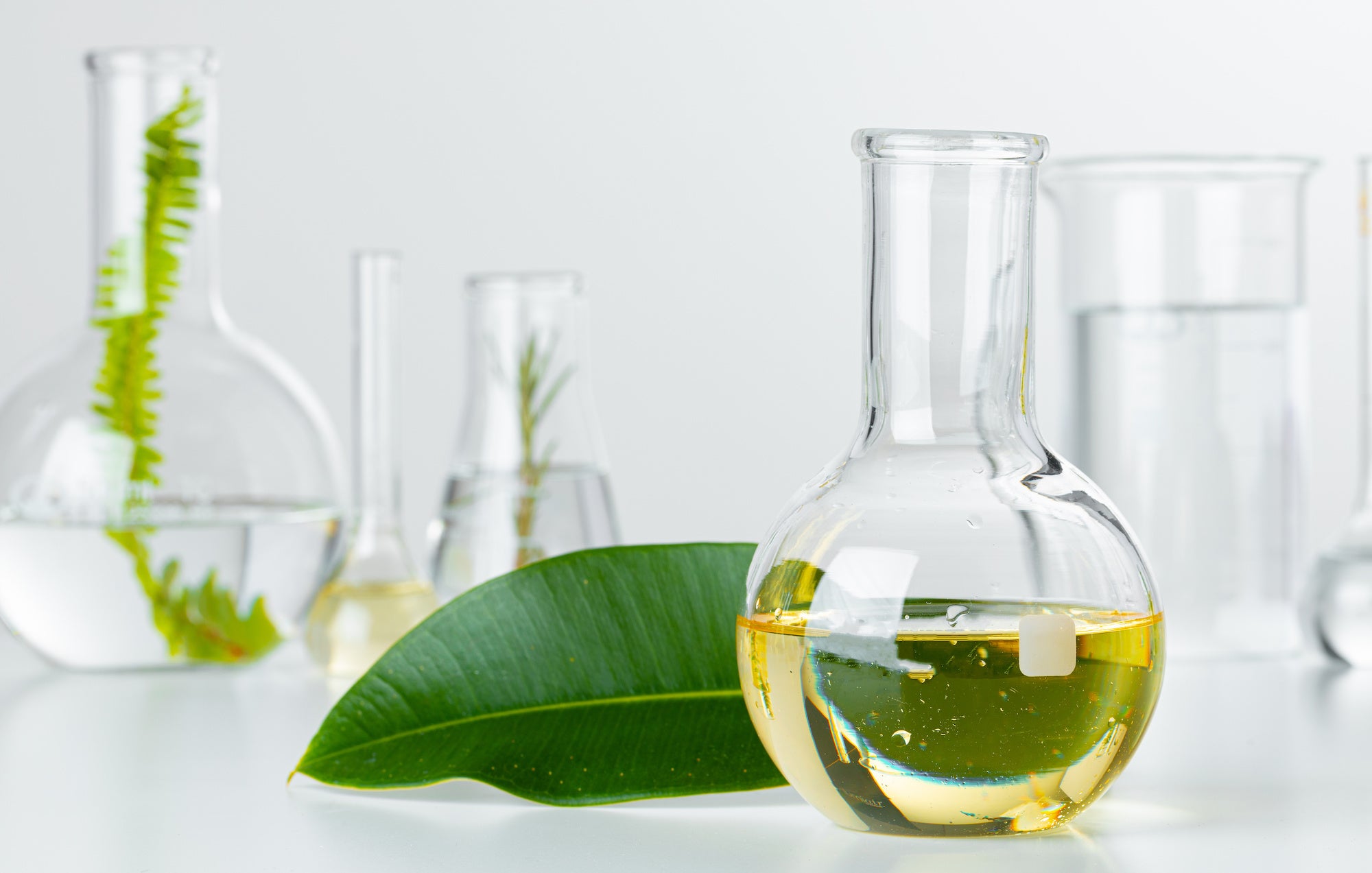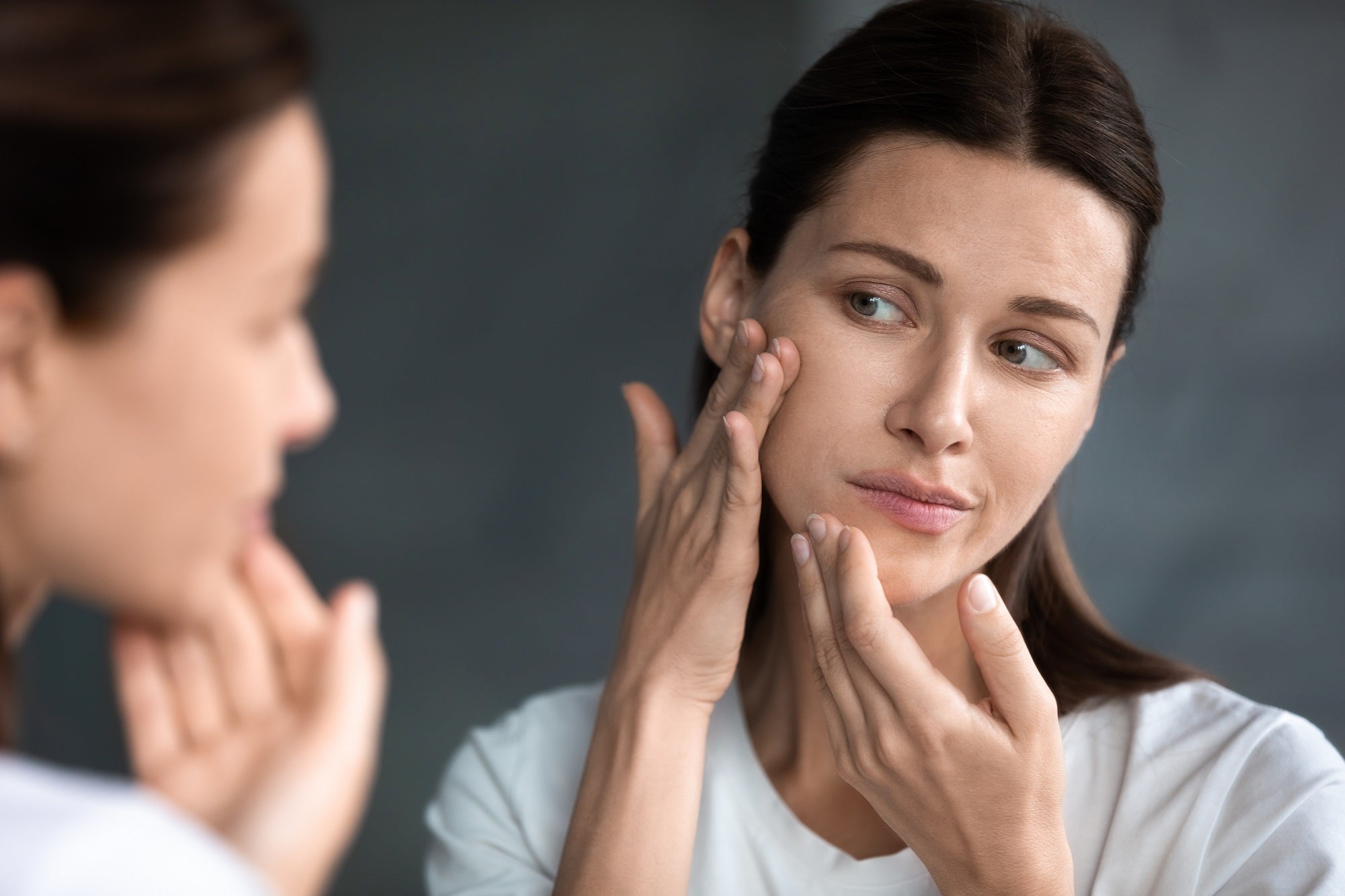
Comedogenic Ingredients In Cosmetics That Can Cause Breakouts
It can be extremely frustrating taking your makeup off at the end of the day to find a new acne breakout has appeared. While there are many reasons those pesky pimples could have come to the surface, have you ever considered that it could be your cosmetics?
So why do some cosmetics cause acne? The short answer is that they clog your pores, suffocating your skin and causing all kinds of harm.
By learning what to look for when buying cosmetics you can avoid pore clogging skincare and makeup once and for all!
Dr. Raymond Schep, Oxygenetix Chief Chemist and skincare expert, shares with us the science behind clogged pores, and the most common comedogenic ingredients to avoid.

What is a Comedogenic Ingredient?
An ingredient that is comedogenic tends to produce or aggravate acne by blocking your pores.
What Causes Clogged Pores?
Pores are tiny openings in the skin that release oil and sweat. Clogged pores are the result of dead skin cells being trapped instead of being shed into the environment.
So when an ingredient is comedogenic, it blocks the pores, stopping dead skin cells from being released while trapping acne-causing bacteria.
In a study done by the Acne Research Institute, ingredients were tested and rated based on their comedogenic properties from 1 to 5, with 1 being the least and 5 being the most likely to clog pores.
Here is a list of the most comedogenic ingredients you can find in cosmetics today. These all have a comedogenic rating of 4 or higher.

Lanolins - sheep fat, or wool fat or wool oil
Lanolin is made from sheep fat, wool fat, or wool oil. It is the greasy, oily sebum that conditions sheep wool making it so soft. It has been used for a long time in ointments, body creams, and lotions as an emollient. Because it contains a lot of fat, it is much thicker than human sebum and clogs pores.
Lanolin helps prevent transepidermal moisture loss, which is what makes it a moisturizing agent, however this can be very occlusive and comedogenic. Many with sensitive skin are highly reactive to lanolin, and it is definitely best to avoid if you have acne-prone skin.
You can find the most comedogenic forms of lanolin on ingredient lists with these names:
Acetylated lanolin
Acetylated lanolin alcohol
PEG 16 lanolin
Lauric Acid
Stearyl Heptanoate
Isopropyl isosterate
Isopropyl myristate
Isopropyl palmitate
Isopropyl linolate
Isostearyl isostearate
Myristyl lactate
Stearyl heptanoate
Ethylhexyl palmitate
Isodecyl oleate

Alcohols & Sugars
There are various forms of alcohols and sugars that can be found in cosmetic formulations. Some fatty alcohols that are derived from vegetable fatty acids, beef fat, or fish can have high comedogenic ratings. Sugars are natural humectants, drawing moisture to the skin. Certain kinds can clog pores and exacerbate acne.
Here are the most comedogenic alcohols and sugars you may spot on an ingredient list:
Ceteareth
Laureth-4
Oleth-3
Steareth-10
Glyceryl-3-Diisostearate
Polyglyceryl-3diisostearate
Oleyl alcohol
Isocetyl alcohol
Isocetyl stearate
Hexadecyl alcohol
Octyl stearate
Myreth 3 Myrisrate

Oils
Many facial oils are safe for acne prone skin and won't clog pores. In fact, they can actually help balance the oil production of your skin when they mimic your skin's natural sebum.
Some oils however can clog your pores due to their high molecular size. Watch out for facial products containing large amounts of these oils:
Cocoa butter
Coconut butter
Cocos Nucifera/ Coconut oil
Peach Kernel oil
Linseed oil
Wheat Germ oil
Safflower oil
Please Note
Everyone reacts to comedogenic ingredients differently. Some people have no issue whatsoever, while others are extremely sensitive and break out. This is because everyone has different skin from pore sizes to skin composition.
The occlusiveness of a product also depends on the amount of the comedogenic ingredient in the product. For example if there is only 1% of a comedogenic ingredient in the formulation, it is unlikely to aggravate acne-prone skin.
Oxygenetix for Acne Prone Skin
Oxygenetix products are verified non-comedogenic. They have been tested and tried by cosmetic aesthetic doctors and are dermatologist recommended for treating acne. After a 6 week test that was conducted with 50 participants using Oxygenetix Foundation everyday, there was no sign of clogged pores or irritancy.
Oxygenetix Oxygenating Foundation is gentle and effective for acne, but our Acne Control Formulations take it to a whole other level. With 2% Salicylic Acid, Acne Control Hydro-Matrix and Acne Control Foundation both work to gently exfoliate deep within the dermis, unclogging pores to lessen blackhead and whitehead production. With repeated use this treatment duo helps maintain clear skin while concealing redness and pimples safely.

Here's how you can incorporate Acne Control into your daily routine:
- Cleanse your skin with a gentle cleanser before your makeup application.
- Avoid using your fingertips if you are acne prone since bacteria from your hands can transfer onto your skin. Instead, use a clean sponge to apply Acne Control Hydro-Matrix all over your face and neck using upward motions. This will keep your skin hydrated and provide a smooth palette for your foundation.
- Apply Acne Control Foundation with a clean sponge or a brush. Use gentle tapping motions to apply to your skin. For a full coverage application wait until the foundation sets before applying more layers. (You can build the foundation until desired coverage is achieved without worrying about losing breathability or clogged pores.)
- Put on the rest of your makeup, avoiding powders or other makeups that are occlusive.



发表评论
此站点受 hCaptcha 保护,并且 hCaptcha 隐私政策和服务条款适用。